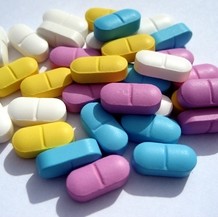Cancer Drugs Used To Shrink Tumors In Fact Promote Their Growth

|
In a prepared statement for the press, Dr. Cherish said: “We’ve discovered that when anti-angiogenesis drugs are used to lower the level of VEGF within a tumor, it’s not so much a reduction in the endothelial cells and losing blood vessels as it is an activation of the tumor blood vessels supporting cells. It appears that the drugs, in shutting down VEGF activity, are actively maturing blood vessels, causing them to become stable and more normal, as opposed to reducing blood vessels.”
Although the findings of this study might sound like a death knell for drugs like Avastin, Dr. Cheresh claims the fact anti-angiogenesis drugs can increase tumor size and give them stronger blood vessels could be a good thing. According to his press statement, he suggests chemotherapy drugs may be able to get to cancer tumors more directly through the stronger blood vessels created by the anti-angiogenesis drugs. “We have to test available regimens and perhaps restructure the way that we give drugs,” he said. “We may be giving the right drugs, but we may not be giving them in the right order. We’re just beginning to understand how it works.”
That could be seen a huge understatement. After all, Dr. Cheresh’s own research shows the supposedly cancer fighting anti-angiogenesis drugs appear to do exactly the opposite of what scientists thought they did.
Dr. Cheresh also points out in his media statement that the results of the Nature study demonstrate how a specific host’s response to cancer is critical in terms of susceptibility to therapy. “It’s not just about the therapy, but also what the host does in response to the cancer that makes a difference whether a tumor lives or dies, and if it’s susceptible to a drug or not. We can change the host response to the cancer,” he stated.
While Dr. Cheresh is talking about using drugs to influence how the host responds to cancer, natural health advocates have pointed out for decades that strengthening the body’s own defense system and avoiding cancer-promoting and potentially health-weakening toxins, foods and behaviors can help keep cancer at bay. Mainstream medicine appears to be recognizing the efficacy of this strategy more and more, too.
For example, a new review sponsored by the American Cancer Society just published in CA: Cancer Journal for Clinicians studied potential pharmaceutical, dietary, surgical, and other approaches to reducing the risk of breast cancer . The conclusions show that risk reduction strategies should focus primarily on lifestyle factors — specifically, eating a healthy diet, drinking alcohol moderately or not at all, and maintaining a healthy weight. In other words, natural, common sense healthy living that strengthen the “host” appear to be the best ways to prevent cancer in the first place.
Source: NaturalNews.com
Pages: 1 2






















0 Comments
Trackbacks/Pingbacks